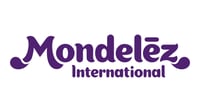Similar Jobs
The Leidos Health and Civil Sector is seeking a Geospatial Data Scientist with expertise in machine and deep learning for geospatial applications and snow remote sensing. This position will be part of the growing Earth Intelligence team, which has demonstrated funding success with multiple agencies and the resources of a Fortune and S&P 500 company with over 47,000 employees.
The work involves building applied scientific tools for a number of federal agencies, covering the full project lifecycle from: proposal, prototyping, customer feedback, revision, and delivery of quality-controlled finished software. The incumbent will work on multiple projects across federal contracts with agencies including: NASA, NOAA, USGS, and the USACE. For example, we have work specifically on optical and microwave remote sensing of snow and ice. This is a full-time role with a remote work location of the incumbent's choice anywhere in the US.
Basic Qualifications:
- English language fluency
- US Citizen or Permanent Resident
- Ph.D. in a technical field involving Earth observations or an MSc. with 4 years of relevant experience in geospatial data analysis and machine learning for Earth intelligence applications
- Knowledge of satellite-based or airborne remote sensing instruments and methods, such as hyperspectral, multispectral, passive microwave, and thermal infrared
- Proficiency with:
- Machine and deep learning techniques (e.g., neural networks, random forests) and Python libraries (e.g., scikit-learn, PyTorch, TensorFlow, Keras)
- Python for processing and analysis of large geospatial datasets (e.g., rasterio, xarray/rioxarray, geopandas, satpy, Dask)
- Geospatial and GIS tools: GDAL, ArcGIS Pro, QGIS, or similar
- Geospatial raster data (e.g., projections, interpolation)
- Version control: Git
- Numerical optimization: solving linear systems
- Established record of technical writing of proposals, reports, and user manuals
Preferred Qualifications:
- Deep experience instead of proficiency in any or all of the above tools
- Industry & academic experience
- Publications in high-impact scientific journals
- Cryospheric research and field work experience; remote sensing validation of snow and/or ice using in situ measurements
- Experience rapidly developing and deploying deep learning models on geospatial images
- Experience with:
- MATLAB, IDL, R, or other high-level languages
- Efficient geospatial data formats: NetCDF, HDF5, and Zarr
- A variety of sensors for cryospheric applications - hyperspectral, multispectral, microwave, & thermal
- Multi-sensor fusion techniques
- Energy-balance modeling for cryospheric applications
- Mobility applications - optimal route-finding strategies
- DevOps
- SQL databases
- Radiative transfer models
For U.S. Positions: While subject to change based on business needs, Leidos reasonably anticipates that this job requisition will remain open for at least 3 days with an anticipated close date of no earlier than 3 days after the original posting date as listed above.
Pay Range:Pay Range $85,150.00 - $153,925.00The Leidos pay range for this job level is a general guideline only and not a guarantee of compensation or salary. Additional factors considered in extending an offer include (but are not limited to) responsibilities of the job, education, experience, knowledge, skills, and abilities, as well as internal equity, alignment with market data, applicable bargaining agreement (if any), or other law.
What you need to know about the Seattle Tech Scene
Key Facts About Seattle Tech
- Number of Tech Workers: 287,000; 13% of overall workforce (2024 CompTIA survey)
- Major Tech Employers: Amazon, Microsoft, Meta, Google
- Key Industries: Artificial intelligence, cloud computing, software, biotechnology, game development
- Funding Landscape: $3.1 billion in venture capital funding in 2024 (Pitchbook)
- Notable Investors: Madrona, Fuse, Tola, Maveron
- Research Centers and Universities: University of Washington, Seattle University, Seattle Pacific University, Allen Institute for Brain Science, Bill & Melinda Gates Foundation, Seattle Children’s Research Institute


.png)
